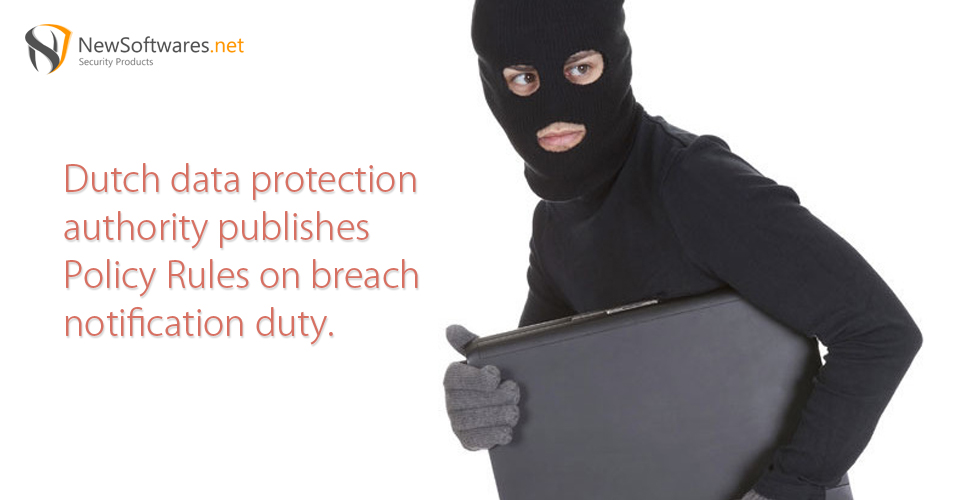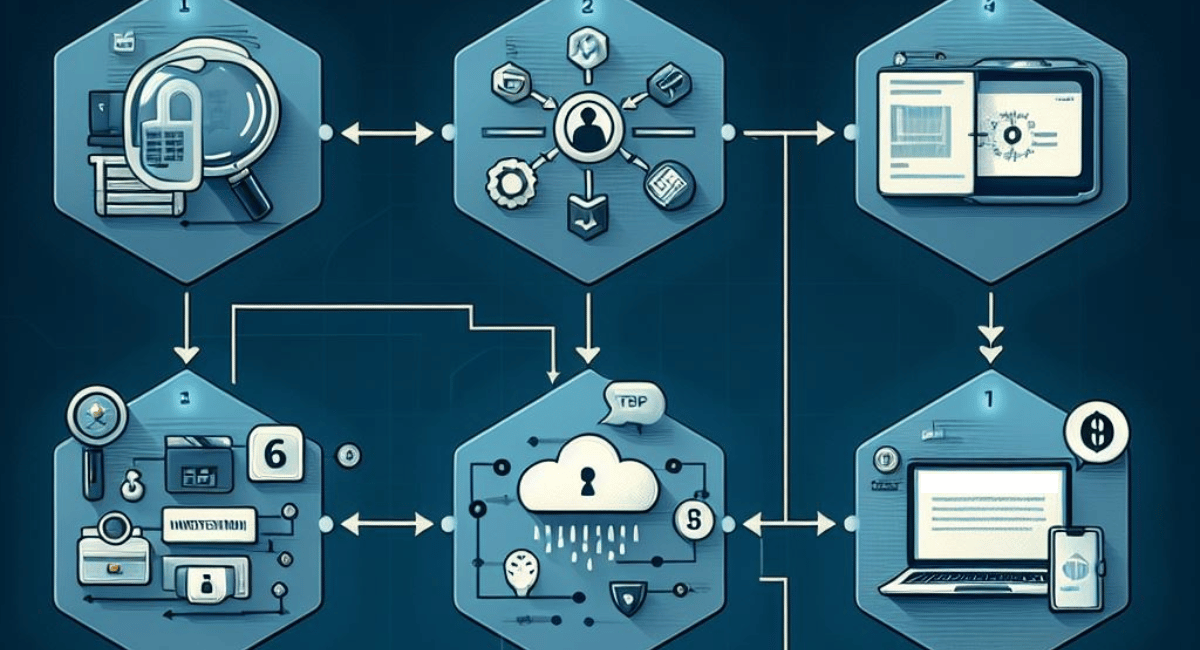An amendment has been made to the Dutch Data Protection Act, which requires all data processors to notify Cbp of any serious data breaches beginning January 1, 2016. Failure to notify Cbp could result in fines of 10 percent of a data processor’s revenue, capped at €810,000.
This amendment comes after a series of complaints by citizens of their electronic equipment, most specifically their laptops being stolen, and the data being used for criminal purposes. Notifying the authorities at an earlier time would make it easier for them to recover the equipment before the data is used for illegal purposes.
However, it’s always better to feel safe than sorry. There’s no guarantee whether you or the authorities would be able to recover your data on time. So before your data is used against you, we recommend that you protect it with a powerful encryption software, Folder Lock.
Folder Lock lets you password-protect files, folders and drives; encrypt your important files on-the-fly; backup them in real-time; protect portable drives; shred files & drives and clean history. Folder Lock is the most downloaded file-security application with more than 25 million users.
The newest version of Folder Lock, i.e. Folder Lock 7.5.6, has been released which, the company boasts, is the most stable version of Folder Lock yet. All the bugs have been removed from Folder Lock 7.5.6, and it is fully compatible with Windows 10 Operating System too. So keep your data secure with Folder Lock 7.5.6!
Define Breach Notification Period
The breach notification period is the amount of time that an organization has to notify individuals of a data breach. This period varies depending on the laws and regulations in the jurisdiction, but typically ranges from 30-90 days.
Data Breach Notifications Required Under The GDPR
Under the GDPR, all data controllers must notify the relevant supervisory authority of a data breach within 72 hours of becoming aware of the breach. They must also inform the affected individuals without undue delay. Data controllers must provide the following information in their notification:- The nature of the data breach
– The name and contact details of the data controller
– The likely consequences of the data breach
– The measures taken or proposed to be taken by the data controller to address the data breach
– The contact details of the supervisory authority to which the data breach has been reported
Modes Of Breach Of Obligation
1. Unauthorized access or disclosure of personal data: This involves the unauthorized access or disclosure of personal data, either intentionally or unintentionally.2. Loss or destruction of personal data: This involves the loss or destruction of personal data, either intentionally or unintentionally.
3. Loss of control of personal data: This involves the loss of control of personal data, either intentionally or unintentionally.
4. Failure to comply with data subject rights: This involves the failure to comply with data subject
rights, either intentionally or unintentionally.
5. Unauthorized processing of personal data: This involves the unauthorized processing of personal data, either intentionally or unintentionally.
6. Inadequate security measures: This involves the inadequate security measures, either intentionally or unintentionally, that put personal data at risk.
7. Data breach: This involves the unauthorized access or disclosure of personal data, either intentionally or unintentionally.
Exceptions To The Definition Of Breach

1. Unintentional acquisition or access of personal data: If a person or organization unintentionally accesses or acquires personal data, this does not constitute a breach.
2. Inadvertent disclosure of personal data: If a person or organization inadvertently discloses personal data, this does not constitute a breach.
3. Unintended use of personal data: If a person or organization unintentionally uses personal data, this does not constitute a breach.
Defining Notification Obligation GDPR

A notification obligation under GDPR is a requirement for an organization to inform individuals and the relevant authorities when a data breach has occurred. This obligation is to ensure that individuals are made aware of the breach and can take the necessary steps to protect their personal data. Organizations must also inform the relevant authorities so that investigations can be conducted and appropriate measures taken to prevent similar breaches in the future.
First Breach Rule
The first breach rule under GDPR is that organizations must notify individuals and the relevant authorities of a data breach within 72 hours of becoming aware of the incident. This notification must include the nature of the breach, the categories and approximate number of individuals affected, and the likely consequences of the breach. Organizations must also provide contact details for the data protection officer and a point of contact for further information.
Legal Definition Of Breach Of Duty
The legal definition of breach of duty is any failure to fulfil a legal obligation or duty that has been imposed upon an individual or organization. This could include a failure to comply with a statute, regulation, contract, or other legal obligation. Breach of duty may also refer to an act or omission that results in a breach of trust or confidence, or that causes harm to another person or organization.
Types Of Breaches
There are many different types of breaches of duty, including breach of contract, breach of fiduciary duty, negligence, and breach of trust. Other types of breach of duty may include breach of warranty, breach of confidence, and breach of statutory duty.
Who Needs To Be Notified In Case Of Data Breach In Organization?
In the event of a data breach in an organization, it is important to notify the affected individuals, any relevant regulatory bodies, and the organization’s legal counsel. Depending on the nature of the breach and the applicable laws, other entities may need to be notified as well, such as law enforcement or credit bureaus.
Kinds Of Data Breach
The three main kinds of data breaches are unauthorized access, accidental disclosure, and malicious attacks. Unauthorized access is when someone gains access to data without permission. Accidental disclosure is when data is unintentionally released or shared with someone who is not authorized to access it. Malicious attacks involve malicious actors deliberately attempting to gain access to data.
Types Of Notifications
The three types of notifications are email notifications, text notifications, and push notifications. Email notifications are messages sent to a user’s email address. Text notifications are messages sent to a user’s mobile device. Push notifications are messages sent to a user’s mobile device or computer through an app.
Importance Of Breach Notification
Breach notification is important because it helps protect individuals and organizations from the consequences of a data breach. Breach notification is a legal requirement in many countries, and it is critical to inform individuals whose data has been compromised so they can take the necessary steps to protect themselves. Breach notification also helps organizations respond quickly and effectively to a data breach, minimizing the damage and ensuring that the breach does not happen again.
What Is Dutch GDPR?
Dutch GDPR (General Data Protection Regulation) is a set of rules and regulations designed to protect the privacy and personal data of individuals in the Netherlands. It sets out the rights of individuals to access, rectify, and delete their personal data, as well as the responsibilities of organizations to protect and process data securely. The Dutch GDPR also requires organizations to notify individuals if there is a data breach, and to provide them with information about the breach and how to protect themselves.
Who Is Responsible For GDPR Compliance?
Under the GDPR, organizations are responsible for ensuring their compliance with the GDPR.
Who Is The Dutch Regulator?
The Dutch Data Protection Authority (Autoriteit Persoonsgegevens) is the regulator responsible for enforcing the GDPR in the Netherlands. The regulator is responsible for monitoring and enforcing compliance with the GDPR, as well as providing guidance on how to comply with the regulations.
Forms Of Breach Of Contract
The five forms of breach of contract are:
1. Failure to perform a contractual obligation;
2. Refusal to perform a contractual obligation;
3. Failure to perform a contractual obligation in a timely manner;
4. Making a misrepresentation;
5. Violating a term of the contract.
Five Steps Of Data Breach

1. Identification: Identify the data breach and its potential risks.
2. Containment: Take immediate steps to contain and stop the data breach.
3. Investigation: Take steps to investigate the cause and extent of the data breach.
4. Notification: Notify the relevant authorities and affected individuals.
5. Remediation: Take steps to mitigate the risks and prevent future data breaches.
Who is the Dutch Supervisory authority GDPR?
The Dutch Data Protection Authority (Autoriteit Persoonsgegevens) is the supervisory authority responsible for enforcing the General Data Protection Regulation (GDPR) in the Netherlands. It is responsible for ensuring that organizations comply with GDPR requirements, as well as investigating data breaches and other violations of the GDPR.
